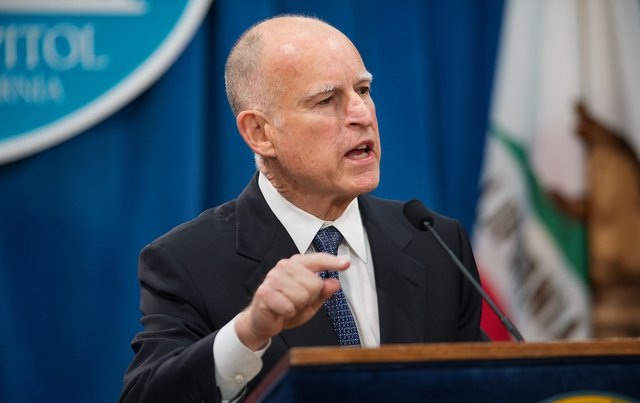UC Online Classes in Exchange for $250 Million Funding

In a press conference last week, Governor Jerry Brown outlined his four-year plan to balance the state budget. He declared strong determination not to see a single tuition increase at the University of California while he serves in office. To accomplish this, Brown is pressuring the UC Regents to push forward with offering online classes.
The passage of last year’s Proposition 30 has allowed the state to increase UC funding by $250 million, to $2.6 billion. However, Brown warned the increase is contingent upon the University holding up their end of the bargain: allocating funds within the University more efficiently.
"The funding increases are associated with the changes, both maintaining affordability as well as going to a more efficient model, effective model where they’re reducing time-to-degree, where they’re increasing course offerings in a matter that’s assisting students in graduating closer to four years."
The $250 million increase in UC funding falls short of the $788 million needed for new developments and renovations. Among the methods of raising revenue and cutting costs, the Regents have proposed increasing out-of-state enrollment, restructuring financial aid, and utilizing a web-based platform to teach core curriculum.
The motivation behind online classes was not to make education more accessible or academically enriching, but rather to balance the struggling university's budget. Pressured by Brown and his proposed budget for this year, the Board has recently been in talks with Udacity, an online course developer who offered Stanford courses online before becoming an independent institution. The first implementation would move required general education classes from overcrowded lecture halls to the web.
In light of the increased funding, equivalent to an extra $2,492 per student, the decision to move class instruction to the web is as much counterintuitive as it is disheartening. Much of each campus’s appeal lies with renowned faculty and university life. Removing these factors may abase UC’s reputation and deprive students of qualities they have come to expect from the university experience.
Although Brown agrees that the UC system needs an operational and financial restructuring, the digital transition may very well enable the Board's dysfunction to continue. Whether it be tuition increases or a service downgrade in the form of UC online classes, last resorts have become standard operating procedure for the UC Regents. Continuing this pattern prevents them from having to create a sustained, long-term budget.
Both Brown and the Board of Regents have touted Proposition 30 as crucial to both balancing the state budget and keeping higher education affordable. While money raised from Prop 30’s passage allows the state to invest in higher education, it was not guaranteed exactly who would benefit until the recently announced 2013-2014 budget.



